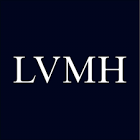$LVMH $KER $RMS
#luxurystocks #investing #LVMH #luxurygoods #stockmarket #luxurybrands #investments #wealthmanagement #globalmarkets #europeanstocks #luxuryretail #economicanalysis
Hannah Gooch-Peters, a prominent fund manager at Sanlam Investments, recently shared her cautionary stance on investing in luxury stocks, including industry giant LVMH. The luxury market has long been a strong performer in global equities, driven by its appeal to high-net-worth individuals, strong pricing power, and resilient consumer demand. However, rising macroeconomic pressures and valuation concerns have caused some investors, including Gooch-Peters, to approach the sector with hesitation. Over the past year, luxury brands have enjoyed robust post-pandemic recovery as wealthy consumers resumed spending on high-end goods. Yet challenges such as slowing growth in China, a critical driver of luxury demand, and tightening monetary policies in Western economies are beginning to cast uncertainty on the sector’s ability to maintain its momentum.
One key concern is the elevated valuation of many luxury names, including LVMH. Following a strong rebound from pandemic lows, companies in this space have seen skyrocketing stock prices, leading to premium price-to-earnings ratios. For instance, LVMH currently trades at a P/E multiple higher than the broader European market, raising questions around sustainability. Gooch-Peters highlights that these lofty valuations may make luxury stocks particularly vulnerable to macroeconomic shocks, such as reduced consumer spending caused by stubborn inflation or interest rate hikes. Despite these worries, she acknowledges the resiliency these brands have historically displayed, given their dominance in a sector with high barriers to entry.
For investors considering luxury stocks, China’s role as a global growth engine is a central part of this discussion. The Chinese market accounts for up to 40% of luxury sector revenues in some cases, making it a vital region for brands like LVMH, Kering, and Hermès. However, recent indications of slower economic recovery in China could pose risks. Gooch-Peters argues that consumer confidence in China has yet to fully rebound, which could weigh heavily on the sector if the anticipated recovery takes longer to materialize. Moreover, geopolitical tensions and trade issues add additional layers of complexity for brands that depend heavily on this critical market.
Despite her current reservations, Gooch-Peters emphasizes that there are factors that could shift her opinion. Improvements in global economic conditions, including a more stable inflationary environment and clearer visibility into China’s recovery trajectory, could make the sector more attractive. Additionally, signs that luxury conglomerates are innovating and diversifying their revenue streams, such as expanding into the digital space or targeting younger demographics, could reduce reliance on their traditional markets and bolster long-term growth potential. For now, however, she remains cautious, reflecting broader concerns among investors navigating an uncertain global economic environment.











Comments are closed.